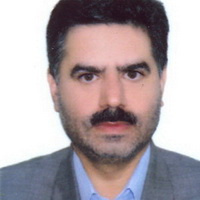The Global Economic Crisis requires New Actors

However, according to the existing global economy regulations, beginning in 2011 the international monetary fund currency basket would evolve and the value of the dollar, determined at 44 percent in the beginning of 2006, fell to 41.9%. But the dollar remained in first place in the currency basket, and according to the same regulations this situation will continue until 2016. It is worthwhile to mention that Japan’s yen has also fallen from 11% to 9.4 in the currency basket, but England’s pound sterling remained at almost the same level and could only increase its share of the basket by 3%. (From 11% to 11.3%)
Another important point is that the euro was able to increase its share in the international monetary fund currency basket from 34% to 37.4%. This way, it took another big step forward in the international financial scene against the dollar.
This enormous change in the mentioned currency basket, which is based upon important international financial indicators (like share in global GDP and share in international trade) means that competition is an important issue in the new order of international economy. In other words, the current economic crisis has opened the scene for the presence of new and unconventional actors in the management of the global economy.
Three months into 2011 and groups in the international arena like the G8 and G20 have proven their inability to manage the economic crisis, and some analysts have proposed new groups for global management. Complete international support during 2009 and 2010 caused some thinkers to propose the G0 (a world with no leader) or the G5, consisting of the US, Europe, Japan, China, and India; and others proposed the G11, which consisted of the G8 in addition to China, India and Brazil. There are other thinkers who came up with the ideas of a G13 or G14.
At any rate, the important point is that during 2010 disputes and a lack of consensus among world economic powers on the one hand and international economic theorists on the other showed that changes brought about by the current economic crisis have altered the international political economy. And we have to come up with new efficient models in terms of controlling the current crisis and preventing new crises from occurring. Theories proposed in 2010 may be summarized as follows:
A: the Chinese model, which is based on the lack of natural harmony and cooperation between economic liberalism and political pluralism, as a replacement for the ruling system backed by the West.
B: Governmental economy (which is different from an economy controlled by the government) is the desired model for the future in a way in which the continuation of the legitimization of governmental subsidies will result in the actual profitability of state enterprises.
C: An encouraging and supportive governmental model that encourages investment and severely weakens the government’s control or management over the economy.
D: The European people-based (society based) market model, which assesses the performance of economic firms, whether public or private, only through the collective interest they create.
In conclusion one can say that the most important changes in the global economy in 2010 were greater transparency in the characteristics of the new order, some of which are as follows:
1- The legitimization of coalitions and cooperation between governmental and nongovernmental actors
2- The collapse of the traditional blocks of economic power
3- A multi-polar order with the participation of a unified Europe, the emerging economies, firms, and private organizations
4- Changing the engine of economic growth from the West to the East
5- An increase in the volume and size of the middle classes worldwide
6- Undermining the theory of profit maximization
7- Strengthening the theory of justice maximization, the denial of monopolies, and the promotion of quality of life
8- Decrease in the importance of economic growth indicators (like GDP) in determining the quality of life

